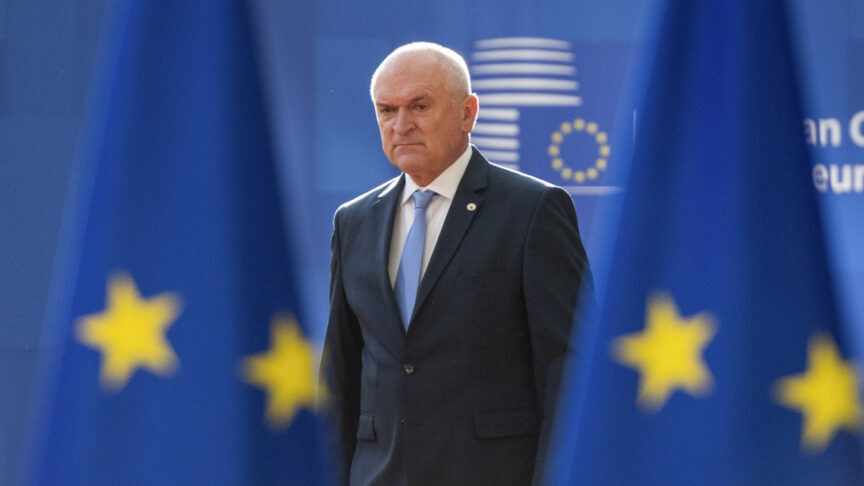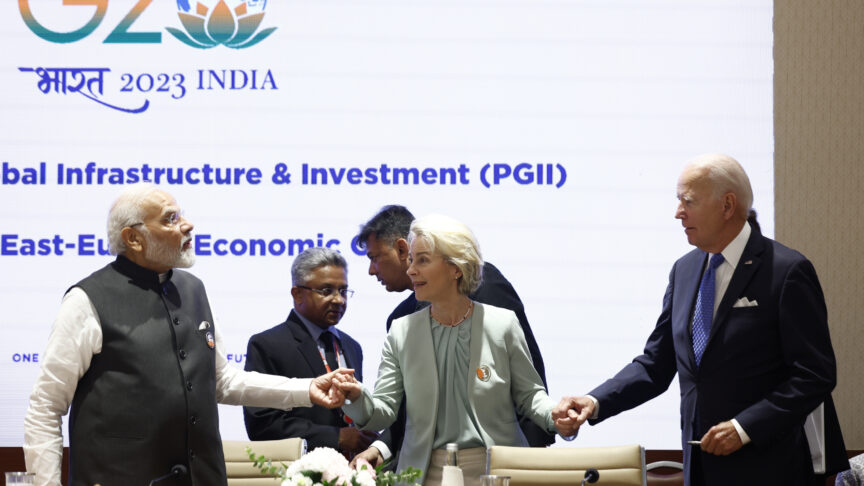Spain versus Russia’s kleptocracy
Let policy not simply be driven by individual judges and magistrates, a case here and a country there – let it be something debated at a national and European Union level and adopted on a broader basis.
Once the sunny and indulgent country of choice for Russian gangsters looking for a haven, a business opportunity, and a tan, Spain is becoming increasingly ambitious and aggressive in its investigation of two organised crime networks – and in the process is even beginning to set its sights on Russia’s kleptocratic system. On 2 May it was finally made public that in January a judge had issued a request for international arrest warrants in the name of several senior Russian officials for their alleged involvement in organised crime.
This is an important expansion in a wider struggle against the intertwining of business, politics and crime within Russia, and the toxic effect this has not only on Russia, but on other countries too.
At the same time, though, it raises concerns about the difficulties in using national law for international and even political purposes, about what happens when loose definitions start driving policy, and about the way initiatives meant to bolster the rule of law may even play in favour of efforts to restrict it.
The case is part of a rolling legal process following two major police investigations – Operation Avispa (2005-7) and Operation Troika (2008-9) – focusing on elements of two connected Russian organised crime networks, the Tambovskaya and Malyshevskaya. At first, the targets were figures regarded primarily as gang leaders, notably Gennady Petrov, often described as the “leader” of the St. Petersburg-based Tambovskaya group, but probably better described simply as one of this diffuse group’s leading lights.
Petrov was arrested in 2008 but later released: he fled to Russia where, by all accounts, he continued his business activities. Here, though, enters one of the first complexities of this case. Is Petrov a “gangster” or a “businessman”? And why does this matter?
In any case, the Spanish investigations have become wider and wider. A petition to the Central Court from Prosecutors Juan Carrau and Jose Grinda in May 2015 named a wide range of Russian officials and politicians for their alleged connections to these criminal groupings, from former Defence Minister Anatoly Serdyukov and former Prime Minister Viktor Zubkov, to current Deputy Prime Minister Dmitri Kozak.
So the Spanish courts are, deliberately or not, embarking on an audacious campaign to use an investigation of crimes committed in their own country to begin a fight back against the criminalisation of Russian politics.
Despite some overzealous reporting, these top-level figures are not actually being indicted, but the list of those who are is still impressive enough. It includes General Nikolai Aulov, deputy head of the FSKN – the Russian anti-narcotics police – as well as parliamentarian Vladislav Reznik and Igor Sobolevsky, former deputy head of the Investigations Committee.
The claims being levelled at these individuals are that they were all closely tied to organised crime, whether actively engaging in criminal acts or helping protect the criminals and facilitate their operations. Aushev, for example, allegedly used his position within law enforcement to intimidate potential threats to Petrov, while Reznik helped get his clients positions within the government in return for money and property.
Until these claims are tested in a court of law, there is no way to know the truth, and given that Russia does not extradite its citizens (it is banned by the constitution) and Spain does not conduct trials in absentia, this is unlikely to happen any time soon. Whatever the facts in these specific cases, though, there is little doubt that this is how things work in Putin’s Russia. Senior criminals are also powerful business figures and will generally have allies within the official and political classes. Furthermore, they largely do so with impunity. This is a political system that fights crime on the streets but turns a blind eye to much of its activities in the board-rooms and ministries.
So the Spanish courts are, deliberately or not, embarking on an audacious campaign to use an investigation of crimes committed in their own country to begin a fight back against the criminalisation of Russian politics.
On one level, this is an important and admirable initiative. If anything, the West must be criticised for having itself turned a blind eye to the antics of Russian kleptocrats, especially so long as they launder their money through the right banks, buy the right property and hire the right lawyers. Having taken advantage of globalisation and the freer flow of money and people, Russia’s filthy rich are now coming to appreciate that this also binds them and makes them vulnerable to the rule of law by proxy.
Corruption, the trading of favours, embezzlement, and favouritism are not just endemic in Russia, but part of a kleptocratic system of rule through which Vladimir Putin controls the elite.
There are also some grounds for concern. First of all, the very concept of “organised crime” becomes more and more meaningless as it is applied more broadly. Whether Petrov is a “gangster” or a “businessman” is irrelevant to his responsibility for crimes he committed, but very relevant to understand the relationships he had with others. Does every corrupt act carried out by a Russian, in Russia, become subject to the Spanish courts if it connects with someone who was in Spain at the time? If this is the case, then if not at first, but second or third hand, every member of the Russian elite could end up the subject of an arrest warrant.
Corruption, the trading of favours, embezzlement, and favouritism are not just endemic in Russia, but part of a kleptocratic system of rule through which Vladimir Putin controls the elite. Given this understanding, do such campaigns start as law enforcement and end up, intentionally or not, as foreign campaigns aimed at regime change?
This is, after all, a perennial Russian claim, and one which has been given additional weight by a recent broadside by Alexander Bastrykin, head of the Investigations Committee, Putin’s inquisitor-in-chief, and incidentally Sobolevsky’s former boss. His article was little short of a manifesto for an authoritarian and isolationist policy, in part driven by the way, in his view, international law has increasingly become a tool of “hybrid war” waged against Russia.
Like it or not, every time Western governments or foundations fund a Russian anti-corruption watchdog, or an election monitor, or a programme to expose media bias, it is attacking pillars of the current political system. When it also tries to prosecute officials for relationships with criminal-business figures that are, frankly, normal in Russia, it is implicitly also engaging in “lawfare” and plays into the hands of the likes of Bastrykin.
This is, of course, not to suggest that the Spanish courts – or any other – should not follow cases wherever they lead and prosecute suspected criminals to the fullest extent of the law. If anything, this is perhaps one of the most effective instruments available to the West if it would like to encourage a cleansing of the Russian political system.
But if so, let policy not simply be driven by individual judges and magistrates, a case here and a country there. Let it be something debated at a national and European Union level and adopted on a broader basis. It will help avoid the usual problem that tightened controls in one country simply drive questionable activities into another, more permissive one. More to the point, it will begin to demonstrate to an elite inspired not by Putin’s vision of a resurgent Russia but by their own quality of life, that they cannot have their cake and eat it. They cannot enjoy the freedom to steal in Russia and the protections of European law here. They think of themselves as “Europeans,” but think that the EU doesn’t really mean it when it claims to be a values-based community. This is a good way to show them – and ourselves – that they are wrong.
The European Council on Foreign Relations does not take collective positions. ECFR publications only represent the views of their individual authors.


